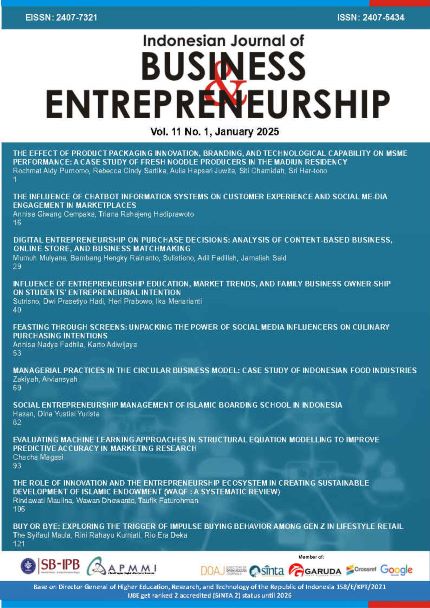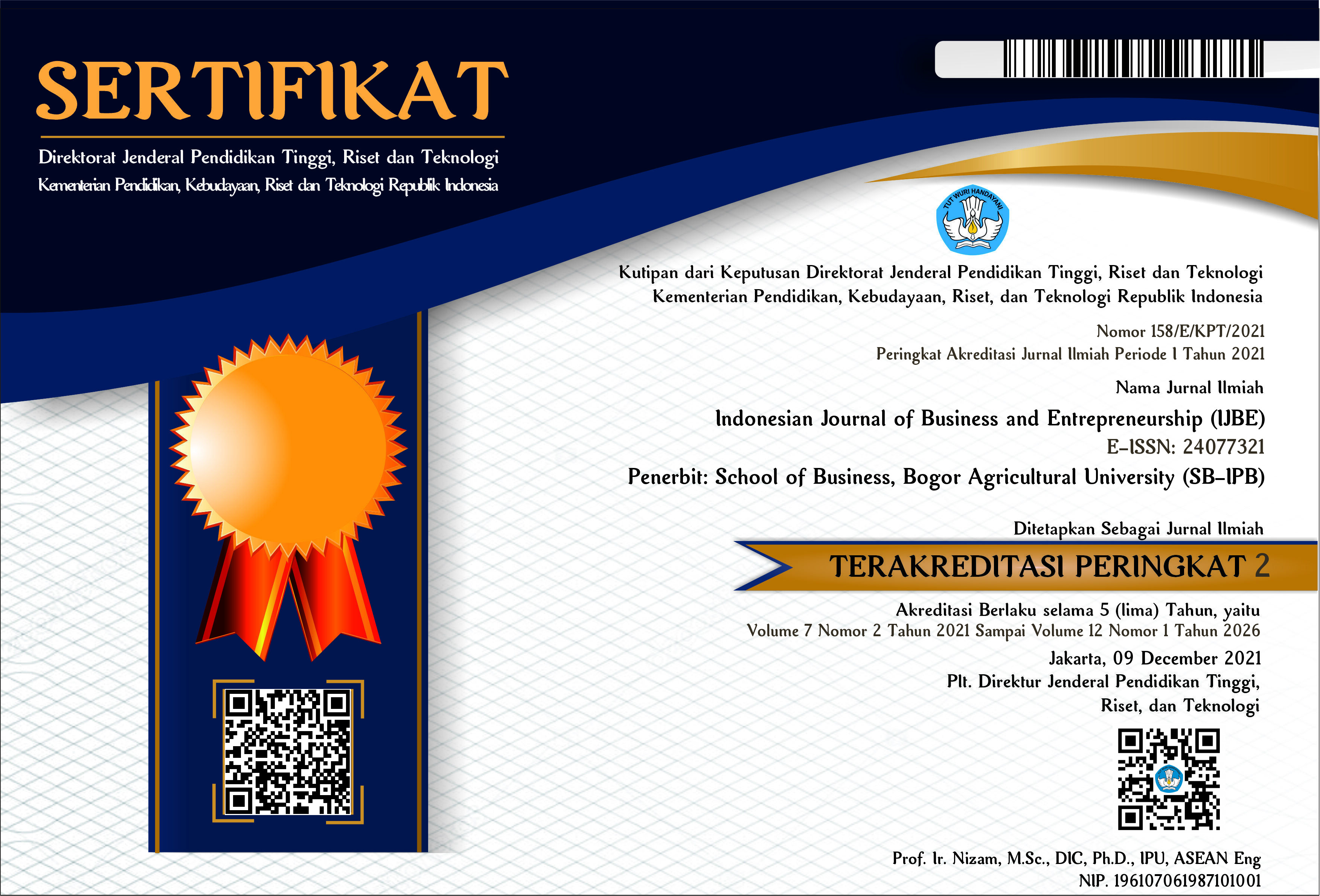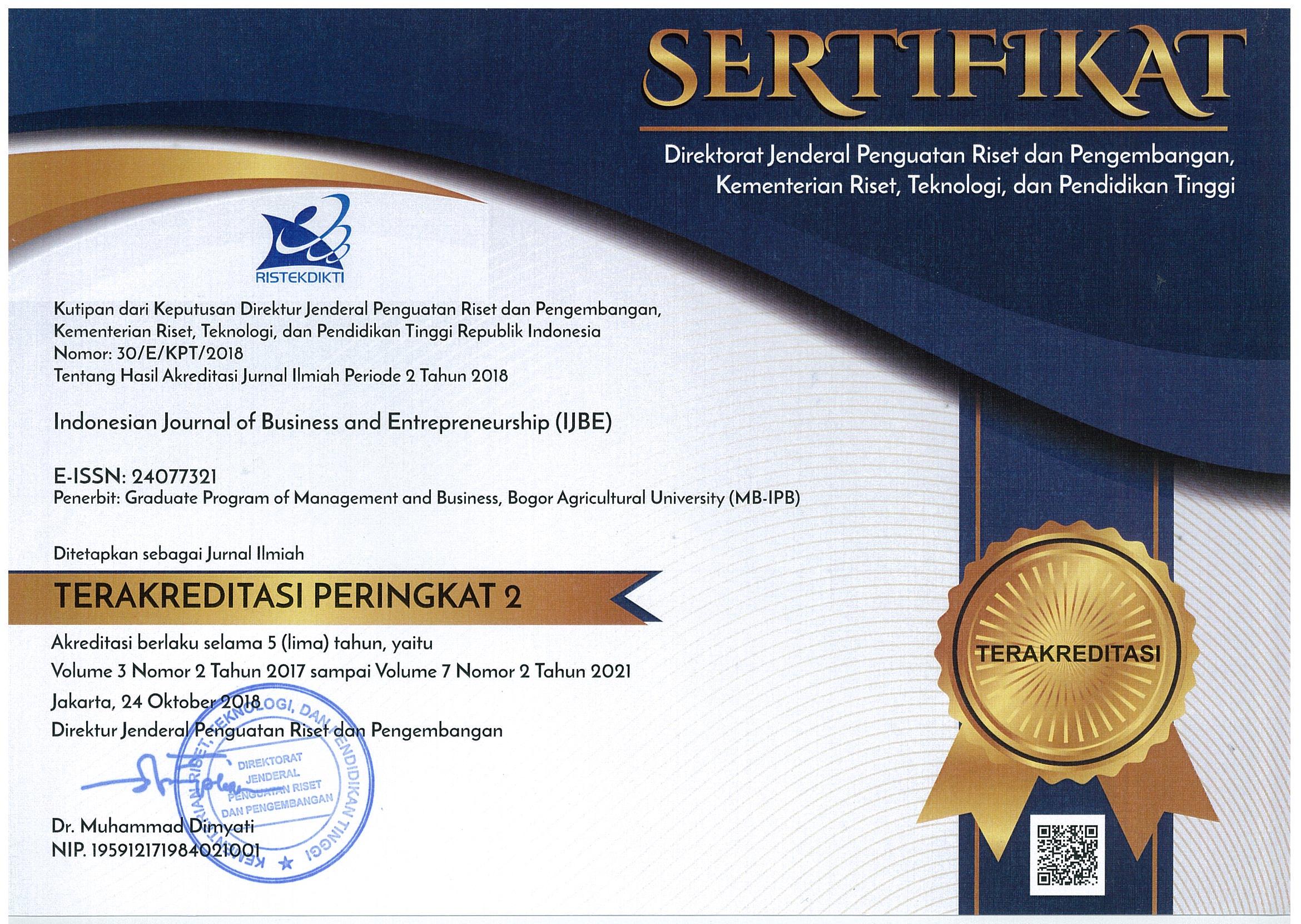The Influence of Hedonic Consumption Tendency and Scarcity Message on Impulsive Buying Mediated By Positive Emotions
Abstract
Background: Populix stated the number of impulsive buying increases along with the development of e-commerce, which provides many stimuli for ease in shopping.
Purpose: The aims of the research are to measure and analyze the influence of Hedonic Consumption Tendency on Impulsive Buying, Scarcity Message on Impulsive Buying, Hedonic Consumption Tendency on Positive Emotions, Scarcity Message on Positive Emotions, Positive Emotions on Impulsive Buying, and Hedonic Consumption Tendency and Scarcity Message on Impulsive Buying through Positive Emotions.
Design/Methodology/Approach: Seven hypotheses were made based on the relationships between the variables. We then tested these hypotheses using PLS-SEM on SmartPLS 4.0. The sample size is set for the minimum of 190 respondents, and the research sample can represent the research population, namely the customers of Shopee Live videos in Surabaya City. We collected primary data from the responses of 195 respondents using Google Forms, surpassing the minimum requirement. The primary data was processed and evaluated to provide research findings that can be used as implications for the company and supporting data for further research.
Finding/Result: he findings of this research show that 1) hedonic consumption tendency has a positive and significant effect on positive emotions and impulsive buying, 2) scarcity message has a positive but not significant effect on impulsive buying, 3) scarcity message has a positive & significant effect on positive emotions, 4) positive emotions have a positive & significant effect on impulsive buying, and 5) hedonic consumption tendency and scarcity message have a positive and significant effect on impulsive buying through positive emotions.
Conclusion: Impulsive Buying is purchasing decision as a response to external stimulus in the form of marketing strategies such as Scarcity Massages and internal stimulus in the form of shopping behavior such as Hedonic Consumption Tendency which is influenced directly or indirectly by the Organism process in the form of Positive Emotion that created.
Originality/Value (State of The Art): The novelty of this research is the research results provide a new perspective on the SOR Theory, that Stimulus can directly create Response without going through the Organism process if the Stimulus is Internal or stimulus comes from the Individual.
Keywords: hedonic consumption tendency; scarcity message; positive emotions; impulsive buying; e-commerce








